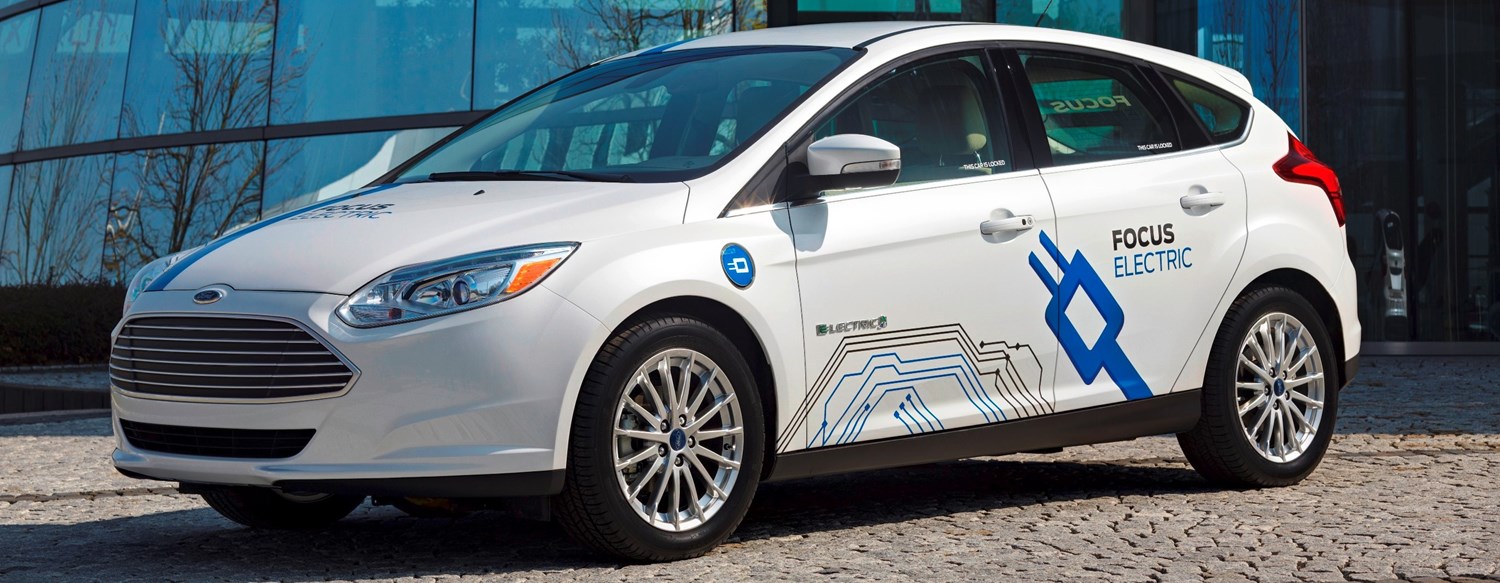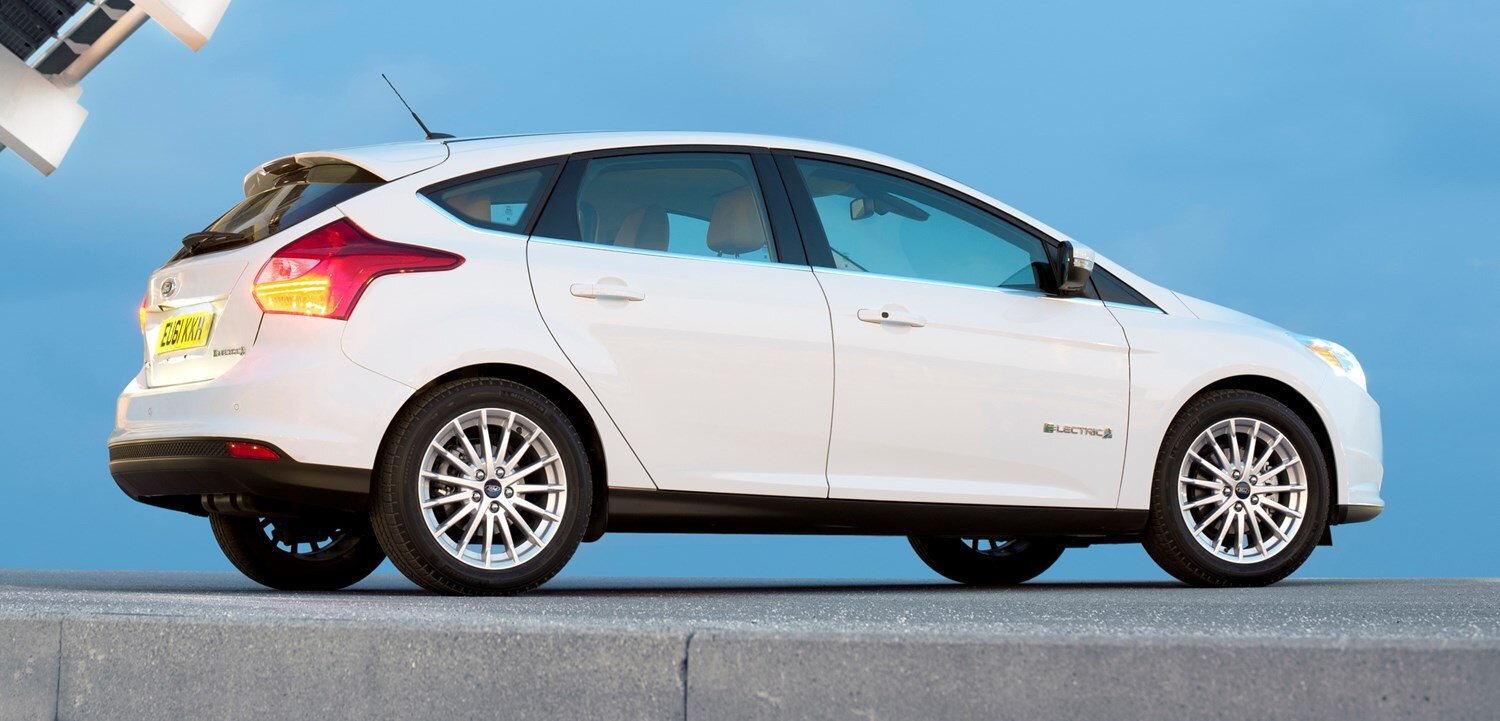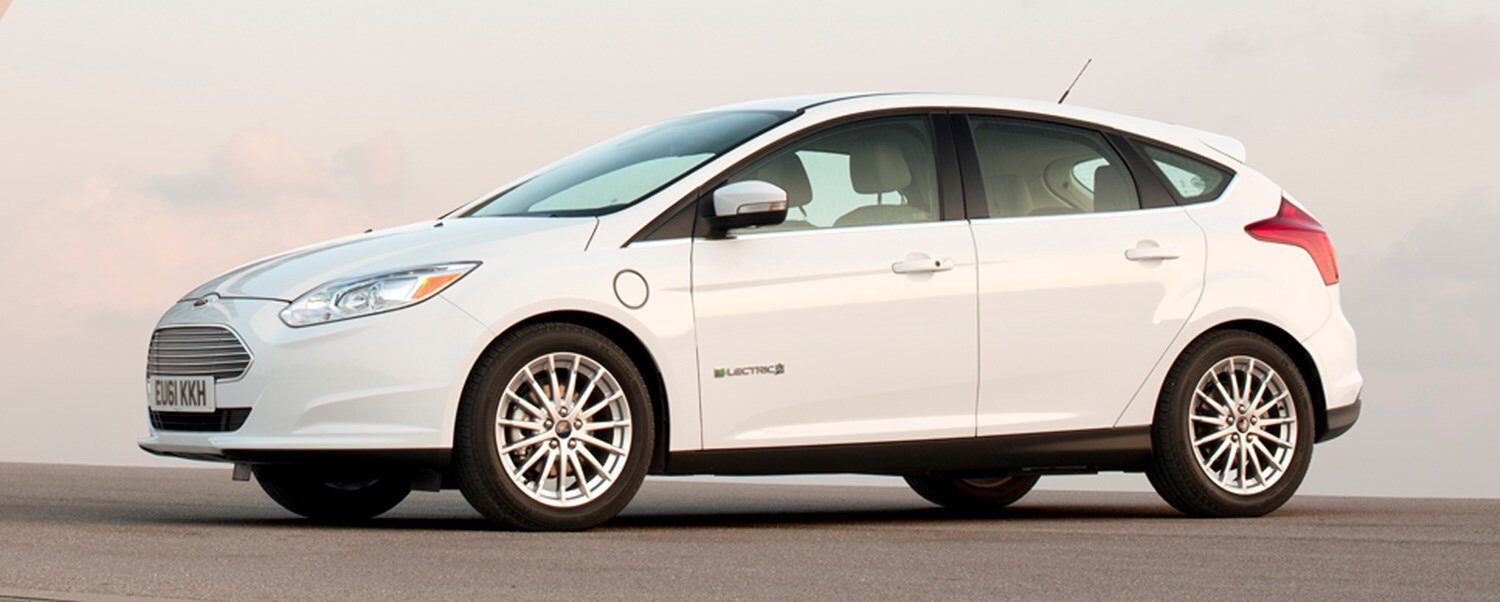Space and practicality
This is another category where, unfortunately, you would probably be better off choosing a standard diesel or petrol Focus.
The pair of large batteries seriously eat into boot space, meaning that the Focus’ already-small 316-litre boot is reduced even further to just 237 litres – much less than even the new Fiesta has.
Space elsewhere is largely similar to that of the standard Focus, meaning plenty of space up front, with average space in the rear. The Focus isn’t the best-packaged hatchback in the first place, though.
As for family appeal, it all comes down to whether you can live with the small boot space. The Focus is a popular choice with families, as there’s plenty of space to fit child seats in the back with Isofix sockets in place.
The standard Focus is a safe car, and was awarded the full five stars by EuroNCAP. It is hoped that the Focus Electric would perform in a similar way - it has never been tested - although unfortunately you can’t specify an electric Focus with autonomous braking or lane-keeping assist, like you can with other Focus models.
Power and range
Just one powertrain option is available on the Focus Electric – a 33.5kWh battery pack. It provides a claimed range of 140 miles, which was an impressive feat a couple of years ago but it has since been caught up and overtaken by rivals from Hyundai, Renault and Volkswagen. The claimed range should be enough for most drivers, though.
It can be fully charged in five hours using a 32 amp home charging socket. You can improve this with a fast-charging DC point, when the batteries can charge to 80 per cent in 30 minutes.
The motors produce the equivalent of 140bhp, allowing you to get from 0-60mph in 10.8 seconds and to a maximum speed of 84mph. As with most electric cars, though, the instant torque from the electric motor makes it feel far quicker than the figures suggest.
Running costs
This is where the Focus Electric truly comes into its element. As unlike the petrol and diesel versions, it is emission-free.
You just have to pay for the electricity you use, which will be far less than any petrol or diesel will ever be. It is also road tax exempt, as it is from many traffic charging schemes such as the congestion charge.
Another benefit of the Focus Electric is the savings it can reap for business users. For these drivers, it is in the lowest Benefit-in-Kind (BiK) grouping, meaning it will be far cheaper on business tax than a standard diesel Focus would be. You do need to remember the excessive amount extra you will pay for it in the first place, though, and what you are going to be using it for.
Finally, while many may be concerned about increased maintenance costs of electric cars, the reality is that there will be hardly any difference. Service scheduling remains the same – every 12,500 miles – although you do need to check that your preferred garage is equipped to deal with electric cars.
The Focus Electric sits in insurance group 20 – the same as both the most powerful 1.5-litre Focus and the Volkswagen e-Golf.


